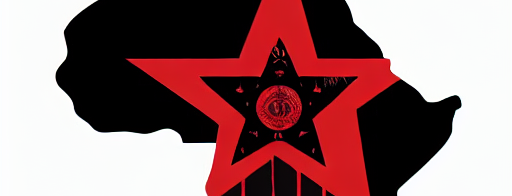By Okoth Osewe
The Acclaimed Political Icon, Raila Amolo Odinga, has been the subject of criticism by his detractors for allegedly squandering his opportunities to ascend to the highest office in the land. Despite having won four elections, repeated election fraud has prevented him from realizing his presidential aspirations. Critics allege that since his has failed to get to State House, he should resign from politics. However, this viewpoint is inherently flawed and fails to comprehend the essence of revolutionary struggles.
Raila Odinga has not espoused a socialist ideology or sought to subvert capitalism in Kenya. Instead, he has firmly established himself as a progressive force in the ongoing National Democratic Revolution, advancing its cause with unwavering fortitude. The suggestion that he should retire from politics is misguided, as revolutionaries never retire. In many situations, the objective of revolution may not be achieved in one lifetime, and the struggle must be carried on by future generations until victory is won.
The struggle led by Raila Odinga is characterized by several factors. At its core, it is a battle against election rigging by a capitalist ruling class seeking to perpetuate their grasp on power, with Western imperialism led by Britain and America complicit in these machinations. The delay in the revolution can be attributed to a multitude of challenges that revolutionary movements face.
Firstly, revolutionary struggles pose a fundamental challenge to the prevailing power structures and allocation of resources, inciting resistance from those who benefit from the status quo. This resistance may manifest as overt acts of aggression or more subtle forms of repression and manipulation. In this case, the controllers of the capitalist system have been manipulating the electoral process to ensure that raila does not become President.
Secondly, those who are comfortable with the status quo and view Azimio (Raila’s latest political outfit) proposed changes as a threat to their way of life, are likely to resist revolutionary struggles. Overcoming this resistance requires a radical shift in political, societal and cultural norms, which can be difficult to achieve. The detractors of Raila Odinga are disinclined towards such change.
Thirdly, the formation of a large and effective social movement is crucial for revolutionary struggles, but this process can be time-consuming and challenging. Disagreements and factionalism within the movement can undermine its unity and direction, hindering its progress. Raila Odinga has been able to mobilize the masses, but the ruling class has consistently conspired against him to steal his election with the support of imperialism.
Fourthly, systemic obstacles such as poverty, inequality, discrimination, and corruption, can impede the ability of oppressed groups and individuals to participate in the struggle and have their voices heard. These impediments can make it harder for the revolutionary movement to achieve its goals. Raila Odinga has not been seeking to replace capitalism with socialism, but he has been a disruptive force in the system, a process that naturally takes time.
Fifthly, international events and relationships, such as economic sanctions, political involvement, and military assault, can have a significant impact on revolutionary struggles. The war in Ukraine and the COVID-19 pandemic had their impacts in the struggl in Kenya. together with imperialist interferance, Raila has been fighting many forces.
Finally, a lack of resources and support can hinder the ability of revolutionary movements to strengthen their power and maintain their momentum. A lack of finance and political support, as well as a lack of access to media and other communication channels, can limit their ability to reach a wider audience and gain public support. This has been more applicable to grass-roots movements seeking to overthrow capitalism in Kenya, rather than to Raila Odinga who has vast resources at his disposal.
On the whole, a revolutionary effort to empower the masses is a difficult and frequently drawn-out process characterized by a series of barriers, roadblocks, and reversals. Resistance from those who benefit from the status quo, shifts in social and cultural norms, systemic impediments, international events and relationships, and a lack of resources and support all contribute to this drawn-out character. However, revolutionary
On the whole, a revolutionary effort to empower the masses is a difficult and frequently drawn-out process characterised by a series of barriers, roadblocks, and reversals. Resistance from those who gain from the existing quo, shifts in social and cultural norms, systemic impediments, international events and relationships, and a lack of resources and support all contribute to the drawn-out character of this process.
But revolutionary struggles, in which people join forces to undermine the existing power system and build a more equitable and just society, can succeed only if they overcome these obstacles. Raila is a cog in the wheel of revolutionary struggle in Kenya. Despite his inability to get to State House, he is responsible for may gains in Kenya’s national Democratic Revolution.
kenyaredalliance.com


